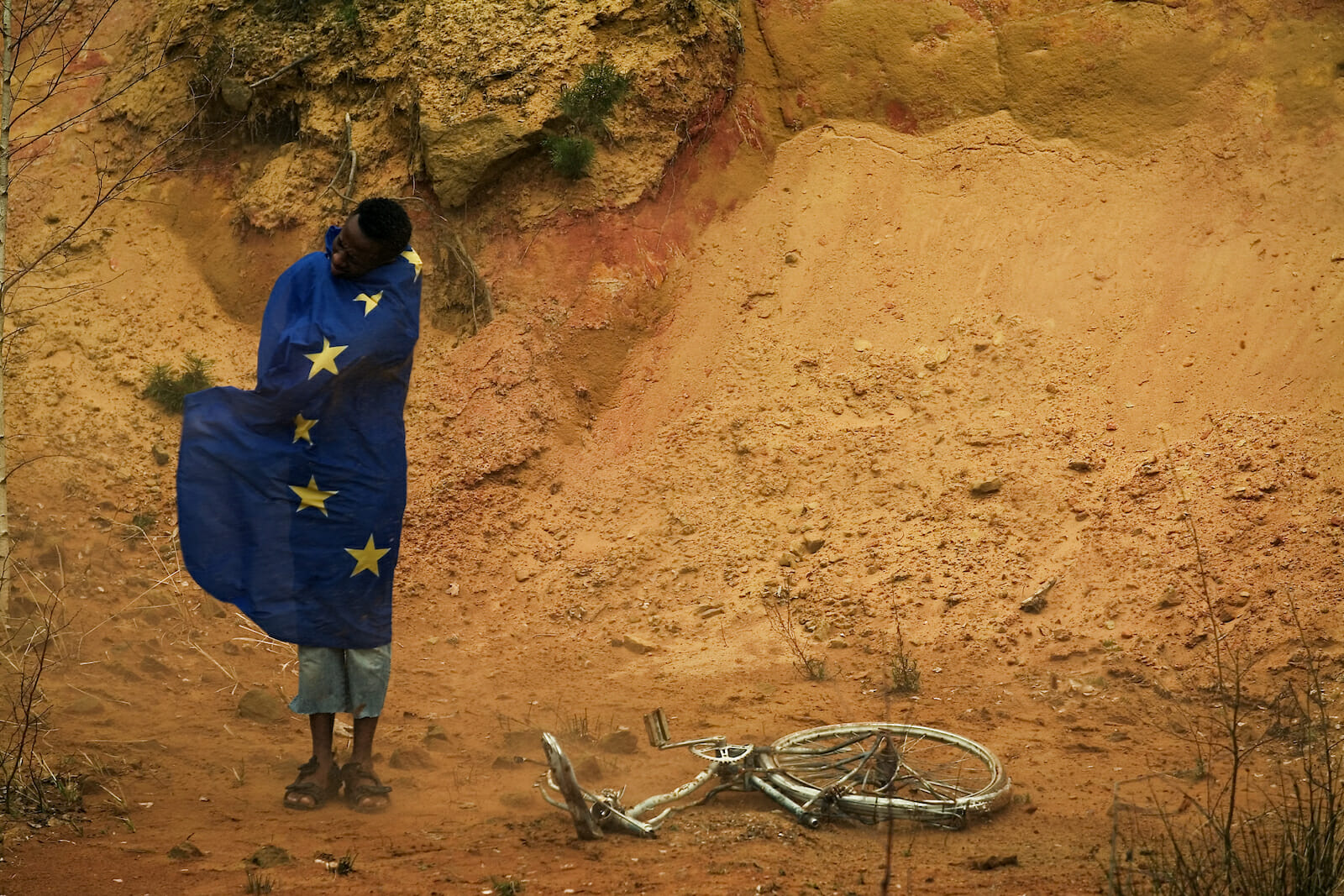
Europe in a Globalized World
The world order is changing and global power is shifting to the East. As China and India continue to rise, many scholars believe that the end of Western hegemony is inevitable. The birth of a new world order, which is manifested through the rise of the East and the decline of the West, will have profound implications. The question is: “Can Europe maintain its global relevance in the 21st century?” This is a hard question because it is very difficult to predict the future of even one country, much less an entire continent. However, considering that Europe’s problems include unemployment, a debt crisis, population decline, and financial paralysis, I believe that barring a quick and effective reaction, its future is dim. Europe will not only lose its global relevance but will also lose its ability to maintain its key role in the Security Council and other important world institutions (the World Bank and the International Monetary Fund).
The world we live in today was shaped by the European powers. Capitalism is a European invention, as is democracy. Many countries around the world are imitating European institutions and want to live in a world defined by liberal democracy and the free market. However, what happens to those countries on the periphery or semi-periphery when the core (Europe) is in decline and might stagnate to the extent of total irrelevance on the world stage? Understanding where Europe is headed in the future is of great importance to the health of global peace since the continent was at the center of world politics for centuries. Liberal democracy characterized by the rule of law, open society, and the equal protection of human rights and political freedoms for all citizens was developed in Europe. Now that we are entering an “Asian century,” what kind of world will that be like, considering that China (the Asian giant in terms of its economic capacity) has nothing in common with the Western world in terms of its history and culture.
It is essential to establish the fact that there is nothing special about the economic, political, and technological ascendancy of Europe in the first place. Jared Diamond has argued, “Geography ultimately accounts for the ascendancy of Europe in the modern world. Its fragmented terrain prevented political unity and provided the competition which gave it the lead over the Fertile Crescent, China and India.”
The reason European societies took the lead in technological innovation, and became the dominant political and economic centers of the modern world were because of their natural resources and locations that were most conducive to cultural innovation and economic development. Geography and impersonal forces, to borrow Isaiah Berlin’s term, are of course not the only reasons for the rise of Europe. Human agency and the choices and policy decisions leaders make about the future of their countries also matter in how a country is doing in its economic performance and political stability.
In his recent book, Civilization: The West and the Rest, Niall Ferguson tries to answer the question of what led to Europe’s military, political, and economic dominance. Ferguson identifies six killer qualities that contributed to the rise of the West: competition, science, property rights, medicine, consumer society, and work ethic. These are the factors that Ferguson believes have shown themselves to work best for humanity over the past five hundred years. They are, however, no longer monopolized by Europe and North America. “The rest” (China, India, Brazil among others) are applying them in a more effective and consistent way than Europe does. Because Europe has turned its back on institutions that made it great in the first place, we might be “living through the end of 500 years of Western ascendency.”
Aside from the factors mentioned above, Europe is also undergoing a serious demographic crisis. It has many minority groups, Muslim and African populations being most notable. However, Europe has not been able to incorporate these groups of people successfully into society and thus expand the size of its productive workforces. Europe’s demographic problem worsened in the aftermath of the global recession of 2008. The Economist recently noted that some of the biggest declines in fertility rates “occurred in countries hardest-hit by the euro crisis.” Having a robust and young population matters and it is an important factor in the calculation of a country’s power. Europe’s population decline and lack of a productive workforce in the long term can present all kinds of challenges to Europe. Whether Europe can resolve its demographic crisis is dependent upon its economic growth and performance. The demographic problem is not as serious in England, Germany, and Belgium because these countries, unlike Italy, Spain and Portugal, are doing economically better.
There are many explanations as to why countries face economic depressions. One reason they are triggered is a lack of government regulation and supervision of the financial industry. Economists like Paul Krugman believe a more proactive regulation of the financial industry can prevent financial crises. There are many factors that could contribute to an economic crisis, and the work ethic can definitely be an integral part of how an economy is doing. In their book, The Future of Europe: Reform or Decline, Alberto Alesina and Francesco Giavazzi write that in the 1960s Europe “looked like a model for the world” because Europeans worked hard. That is not the case anymore. In the 1960s, Europe was still recovering from the destruction of World War II. Factories were destroyed, and human capital was used up by war causalities. This was not a time to think about leisure and consumption, state Alesina and Giavazzi. During this period, the Europeans worked hard and long hours in order to rebuild their societies and resolve their political turmoil. By the late 1970s, things begin to change for the better and they had some success in creating societies that accommodated their demands.
Once Europeans began to fully recover and establish stable societies, they became lazy. They are working less and consuming more. Alesina and Giavazzin write that “by the late 1970s the engine that until then had provided growth stopped working,” a problem they attribute to technology. By the late 1970s and early 1980s, the systems and structures that were responsible for the fast growth of the 1960s could no longer benefit European countries. However, rather than “speed up the destruction of old firms and favor the creation of new, innovative enterprise, Europeans kept on protecting incumbents and dreaming up industrial policy.” Due to these challenges to Europe, Alesina and Giavazzi believe that the twenty-first century does not belong to Europe. In fact, they argue that“the twenty-first century will be the century of European decline.”
I realize I am stating the obvious by saying that having a robust and healthy economy is the key to everything a country does. For example, we rarely see a country that has a world-class army without having a vigorous economy. Financial resources not only can maintain strong armies (hard power) but they can also enhance a country’s soft-power resources. Hard power describes a nation’s ability to use its economic strength and military capabilities to influence other nations’ behaviors. Soft power, on the other hand, is very different and subtler than hard power. Soft power is a term that was developed by Joseph Nye in his book, Bound to Lead: The Changing Nature of American Power. Nye described the term as “ability to attract and co-opt rather than coerce, use force or give money as a means of persuasion.”
Europe has failed to increase its power and prestige around the world in recent years mainly because of its financial problems. It no longer is able to spread its political and cultural values throughout the world and thus has been hindered in fighting global poverty, protecting the environment, and contributing in a significant way to world peace and stability. When the Balkan crisis broke out, it was the United States rather than the European powers that stepped in and resolved that conflict. Europe has been reluctant to use its soft power capabilities around the world not because it lacks financial resources but also because it lacks a grand strategy. In his 2009 article: “What Europe badly needs is a ‘Grand Strategy,’” Jolyon Howorth argues that for Europe to continue to stay relevant, it must establish “greater institutional and political integration, greater military and civilian capacity, more focused and appropriate resources, autonomous and reliable intelligence and better working relations with key partners.” What this really means is that Europe must create a strategic culture through which it can establish a “calculated relationship” with various key players so that it can achieve its interests and objectives.
Howorth goes on to say that Europe needs a grand strategy because we are entering a multipolar world in which there will be multiple powerful players and this era of multipolarity will be defined by uncertainty and unpredictability. To overcome its “demographic decline, energy dependency, lack of key natural resources, geographic exiguity, and lack of military clout,” it must have a collective political approach to the rest of the world so that it can compensate for these natural handicaps. The world order is being reshaped in profound ways. Europe is no longer at the heart of world politics and is no longer the center of power and prestige. There are many players on the world stage now. For Europe to stay relevant and maintain its global influence it must work hard to fight to have an edge over international banking, trading, navigation and military and technological advances.
Any attempt to predict the future of a country will be flawed and will certainly misidentify key aspects of that country’s problems let alone a continent the size of Europe. There are many unpredictable problems that could unfold and complicate the future in ways that are almost unthinkable at the moment. There are many issues such as climate change, global warming, terrorism, and other issues that I do not touch upon in this essay. I am reminded of a quote by jazz pianist Thelonious Monk (originally quoted by Niall Ferguson in his recent book): “Don’t play everything (or every time); let some things go by…What you don’t play can be more important than what you do.” Unless Europe responds to the aforementioned problems, it will lose its relevance on the world stage.

